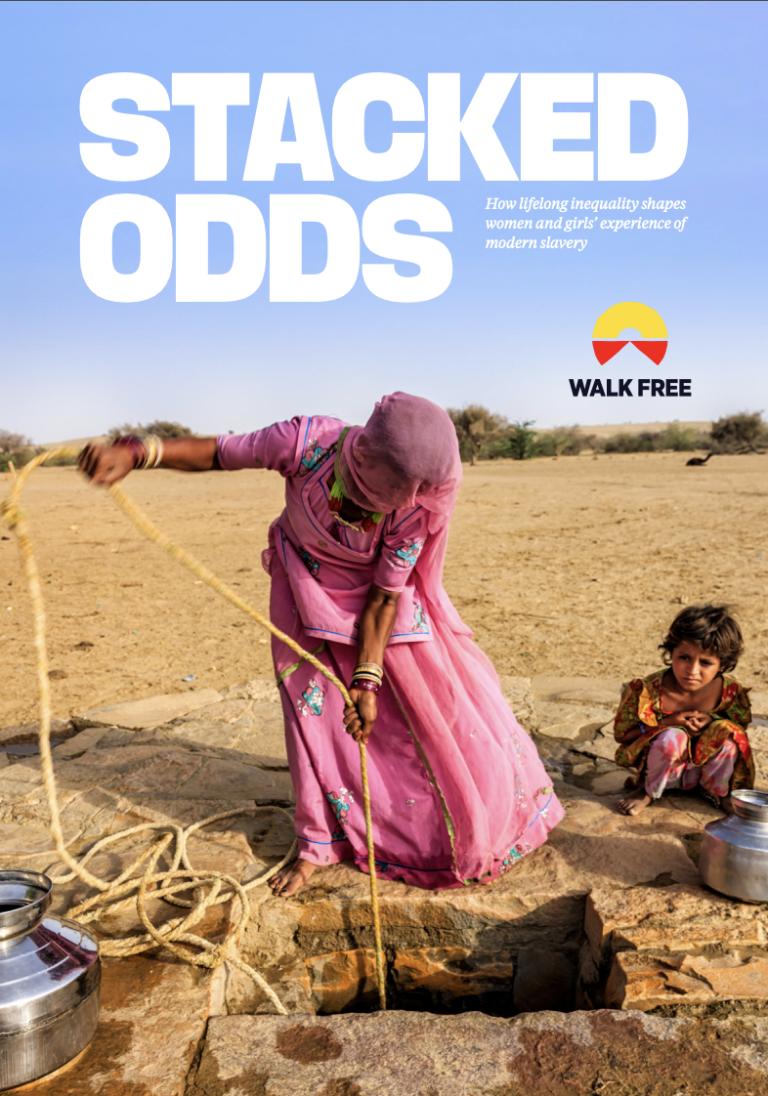One in every 130 females globally is living in modern slavery. In fact, women and girls account for nearly three quarters (71 per cent) of all victims of modern slavery. Although modern slavery affects everyone, there is no escaping the fact that it is a gendered issue. Females account for a staggering 99 per cent of all victims of forced sexual exploitation, 84 per cent of all victims of forced marriage, and 58 per cent of all victims of forced labour.
Fundamentally, modern slavery is enabled by power imbalances. For women and girls, this imbalance is exacerbated by gender inequality and discrimination, which, as this report shows, is embedded in the fabric of our lives – the laws and social norms we live by, the different expectations imposed on daughters compared to sons.
Gender stacks the odds against girls from before they are born, to the end of their life. Sex selection during pregnancy, combined with infanticide, reduces the birth rates and survival of infant girls in societies that consider them economic burdens. As they transition through childhood, adolescence and adult life, the impacts of discrimination multiply and gender inequality grows. In most countries, fewer girls attend school and have access to medical care than boys, and women are more likely to end up in poverty, to work in the riskiest sectors of the informal economy – and ultimately, in modern slavery – than men.

